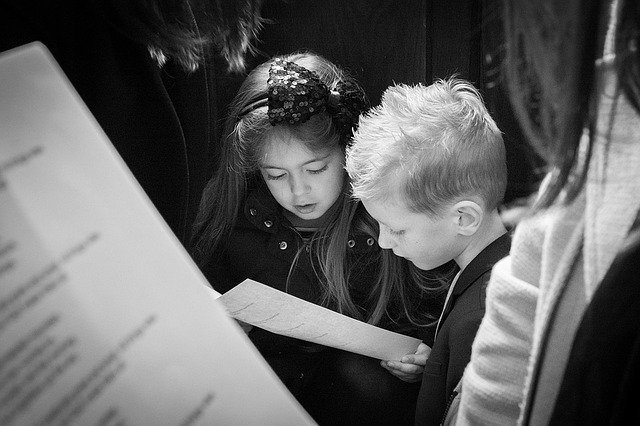Last month we considered ‘the family in the Bible’. In this second article we look more closely at the responsibility of Christian parents.
How do we regard the children graciously given to us by God? Psalm 127:3 says: ‘Behold, children are an heritage from the Lord, the fruit of the womb is his reward’. Children are a gift, they have been entrusted to us. That is both a privilege and a responsibility.
It is true that all parents, whether Christians or not, ought to look upon their children as gifts from God. But Christian parents need to go further and understand that God has blessed them with children, particularly, in order that those children should be brought up in the ways of godliness. To use the words of Malachi 2:14-15, God looks for ‘godly offspring’ from his people.
Recognising responsibility
The exact interpretation of those verses in Malachi is rather difficult but it is plain that God is rebuking Judah because divorce and marriage to pagan women meant that the children were no longer being brought up in a godly fashion.
Does not God still seek godly offspring from the union of two of his people? Why else has he joined them together and granted children to them? This is a responsibility, that Christians must recognise.

It should be stressed that the complete upbringing of children has been committed to the parents. Admittedly, we need to understand how this works out in practice, but the principle is vital. It can be seen plainly in the Bible.
Both Old and New Testaments provide ample instruction concerning the bringing up of children, but this instruction is directed exclusively to the parents. You will find this so if you turn to Deuteronomy 6, Ephesians 6 and Colossians 3.
Proverbs also contains much that is relevant. It is a very interesting book, for it is cast in the form of advice given by wise parents to a child: ‘My son, hear the instruction of your father, and do not forsake the law of your mother’ (1:8).
It is a highly practical book and, since it covers almost every aspect of life, it shows how wide are the responsibilities of parents. Children are a gracious gift from God, but it is the parents who receive the responsibility and privilege of training up those children in the way that they should go.
Not children for ever
Note, however, that all we have said does not mean that parents should look upon children as their own possessions. They are certainly not their possessions, nor their playthings. Children belong first and foremost to God, and there is an entirely unbiblical possessiveness that even Christian parents can show.
Children are not to be dominated. They are to be carefully brought up so that they may later take their place in the world as mature individuals. They are to be prepared to stand on their own feet, to lead their own lives, to marry (if that is God’s will for them), and to have families of their own in later years.
They are given to us not just to keep as children for ever, but for the much higher privilege of preparing them to live for God’s glory in a fallen world.

Not isolation
We ought to remember, too, that while the complete upbringing of children is in the hands of parents, this process is not intended to go on in isolation from everybody else. Children must be brought up to take their place in the world as it is, to live amongst people.
The family is the basic unit in society, but the people who comprise the family have to live among relatives, neighbours, friends, and even enemies. We have fellowship with other Christians within the church, and we also spend much time with those who are not Christians. The world is a big place, and children must be prepared for it.
Since the growing-up process goes on in the midst of others, we cannot bring up children by throwing a protecting wall around them, isolating them from everybody else as much as possible. By God’s grace, they must have Christian attitudes and convictions bred into them, so that they can stand firm when the time comes for them to leave home.
Moreover, while upbringing is committed to parents, they can and must delegate part of their responsibilities to others. It is obvious that most parents cannot teach their children all they need to know, which brings us to the matter of schooling.
Although we may well feel that the schools take too much upon themselves, most parents are quite glad to delegate the teaching of algebra to someone else! Nevertheless, parents who believe the Bible have a God-given responsibility to keep a close watch on all that their children are taught at school or elsewhere.
They should be involved in parent/teacher meetings and associations, and should develop as close a relationship as possible with the schools their children attend. This relationship should be supportive and constructive, so that if occasion arises for Christian parents to criticise some action by the school, such criticisms will be taken seriously.

The child
We have looked at the family, and the responsibility of parents. It is time we considered what the Bible teaches about a child. Children are, first of all, persons in their own right, made in the image of God.
We are warned in the Bible to respect our children. In Ephesians 6:4 Paul says, ‘And you, fathers, do not provoke your children to wrath’. When the disciples tried to turn away mothers who had brought their infants to Jesus, he said: ‘Suffer the little children to come unto me, and forbid them not’. Similarly he added: ‘Take heed that you do not despise one of these little ones’ (Matthew 18:10).
Then again, a child is a sinner in need of salvation. Many people have sentimental ideas about the innocence of children. There are many who deny original sin completely, and who believe in the essential goodness of human beings. They blame sin on social environment, lack of education, emotional or physical deprivation and so on, rather than accept the innate sinfulness of human nature.
The Bible is more realistic. It gives the only possible diagnosis that can account for the facts of sin in the world, namely, that we are born in sin. Says David: ‘Behold I was brought forth in iniquity, and in sin my mother conceived me’ (Psalm 51:5). Proverbs 22:15 declares: ‘Foolishness is bound up in the heart of a child, but the rod of correction will drive it far from him’.
The Lord Jesus said: ‘That which is born of the flesh is flesh’ (John 3:6). Our approach to discipline, education, and teaching our children the things of God, must be based upon this fundamental truth. Children are sinners in need of salvation.

Loving care
Finally, a child needs the wise and loving care of his parents. It is important to remember that while children have their own personality, they are by definition immature and inadequate.
The care of their parents is necessary to protect and guide them until they reach adulthood and maturity. The Scriptures indicate this in such places as Galatians 4:1-2: ‘Now I say that the heir, as long as he is a child, does not differ at all from a slave, though he is master of all, but is under guardians and stewards until the time appointed by the father’.
In Ephesians 4:14 Paul exhorts ‘That we should no longer be children, tossed to and fro, and carried about with every wind of doctrine’. Although addressed to adult believers, this verse reminds us that children are unstable, impressionable and easily influenced.
That, of course, is why God ordained the family. In an atmosphere of love and trust, parents have the humbling and challenging task of preparing their children to take their place as adults in God’s world.
Next month we shall turn to the important, and sometimes contentious, subject of child discipline.







